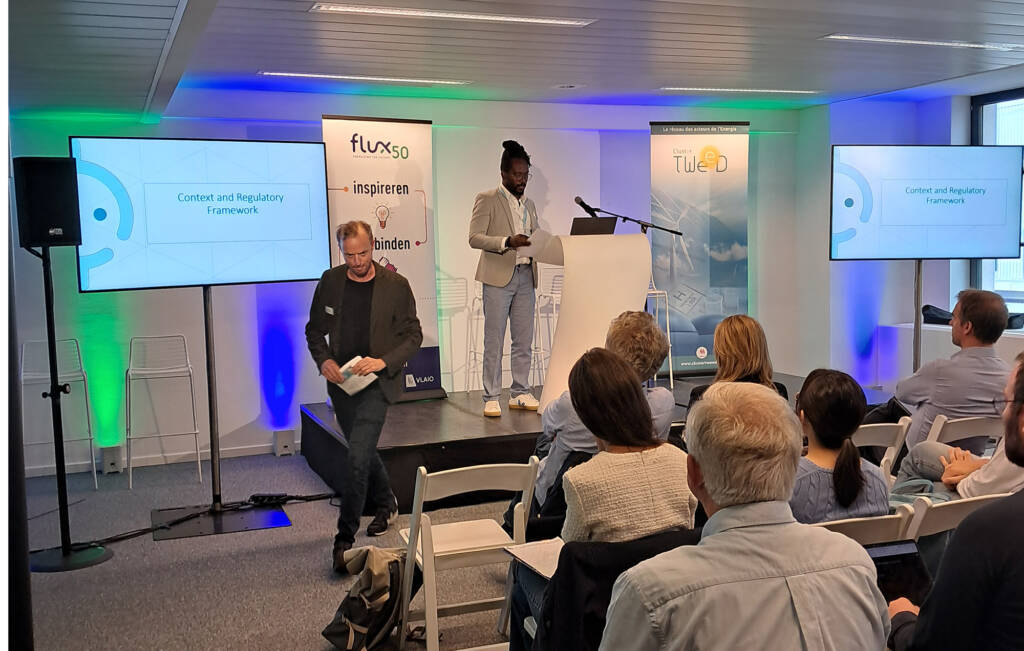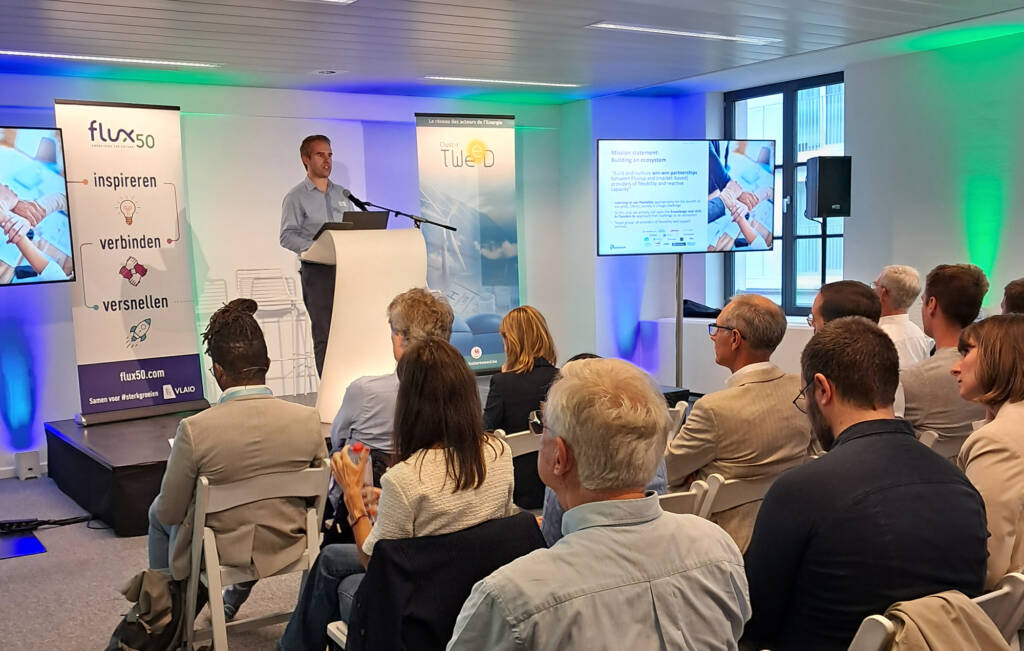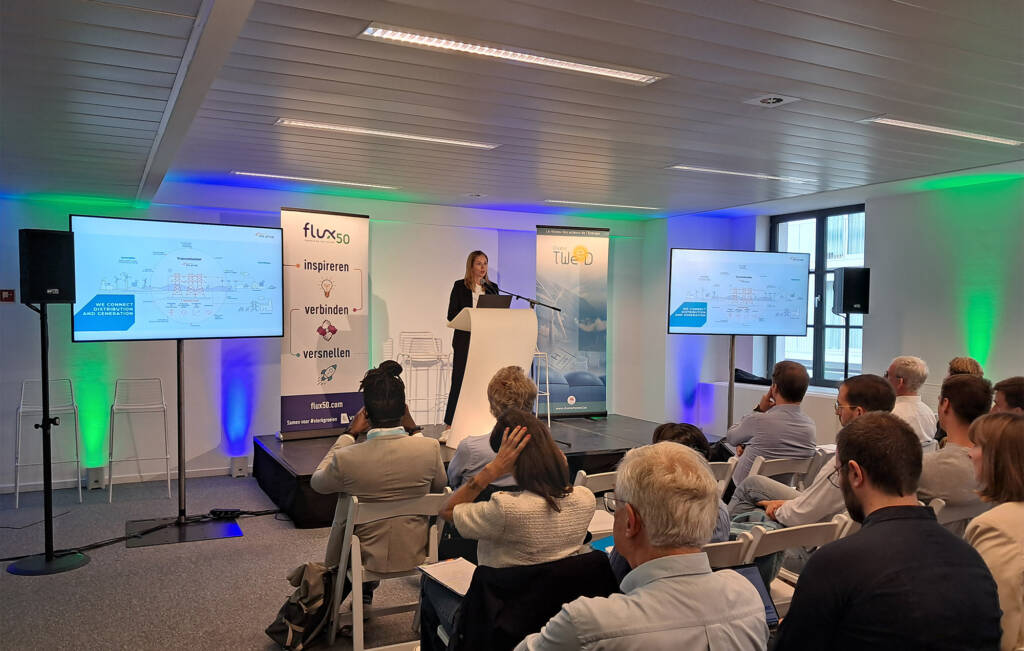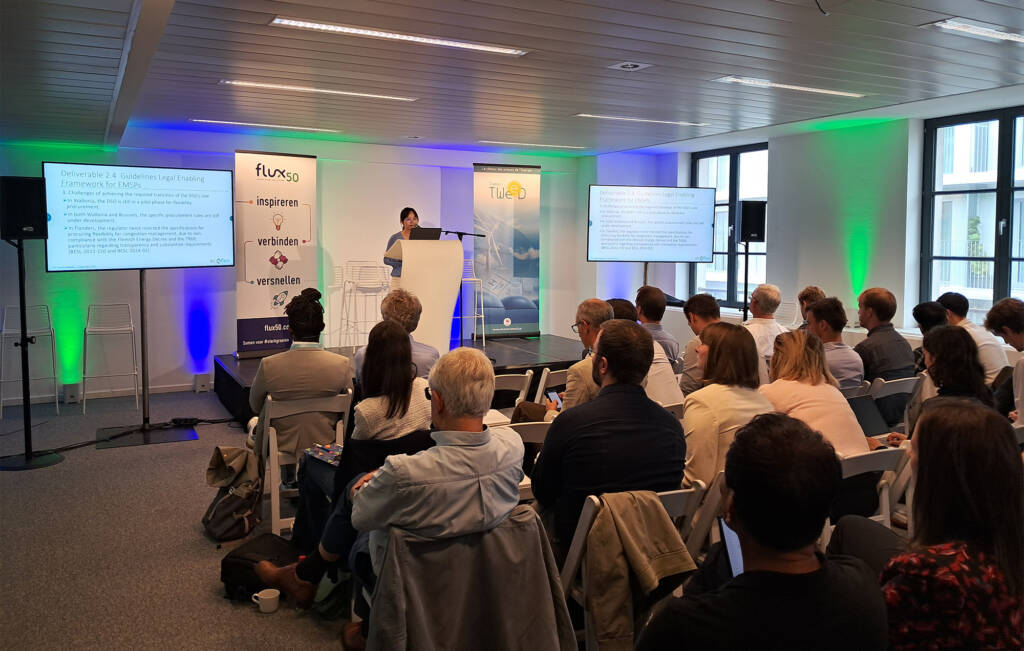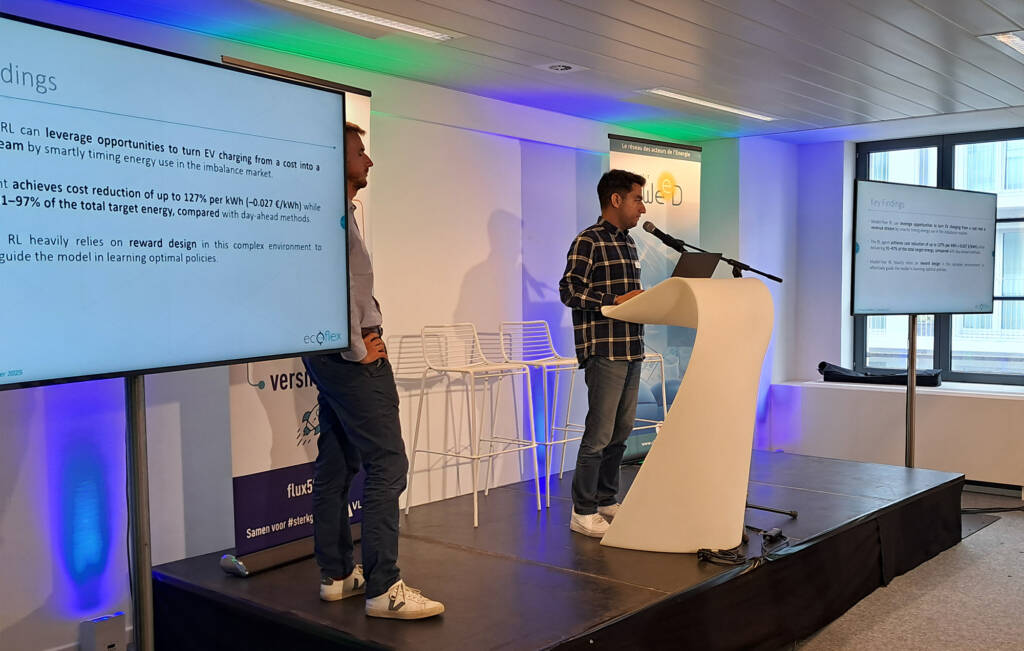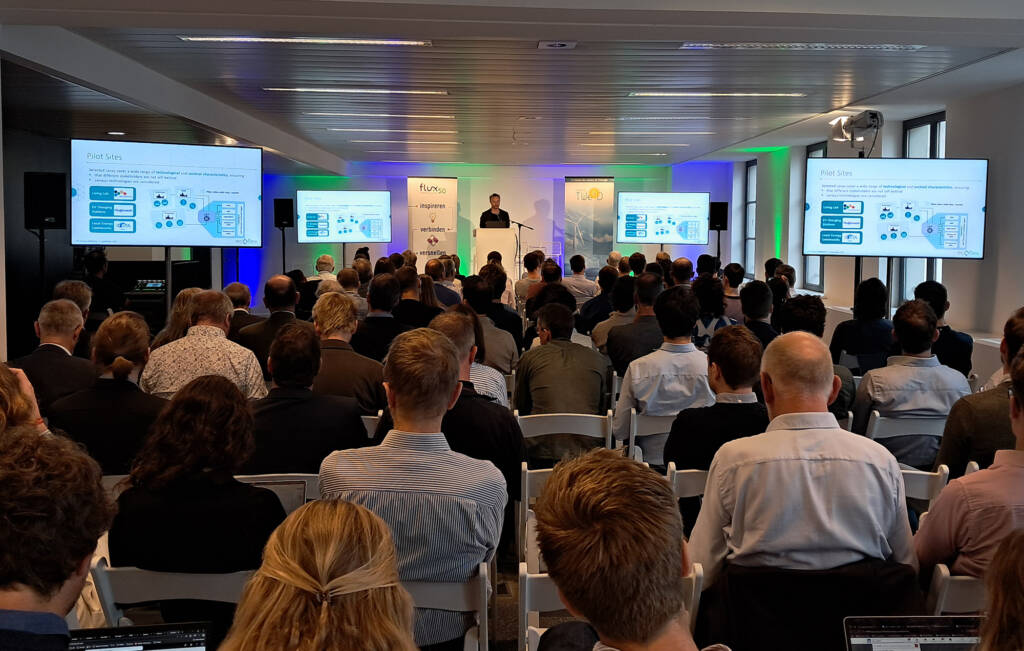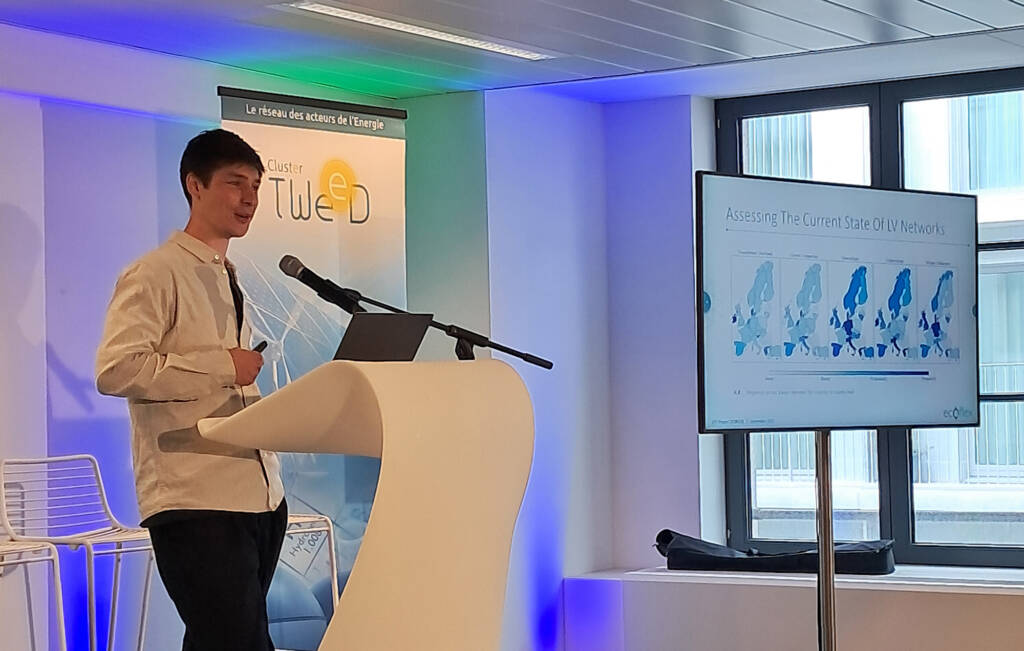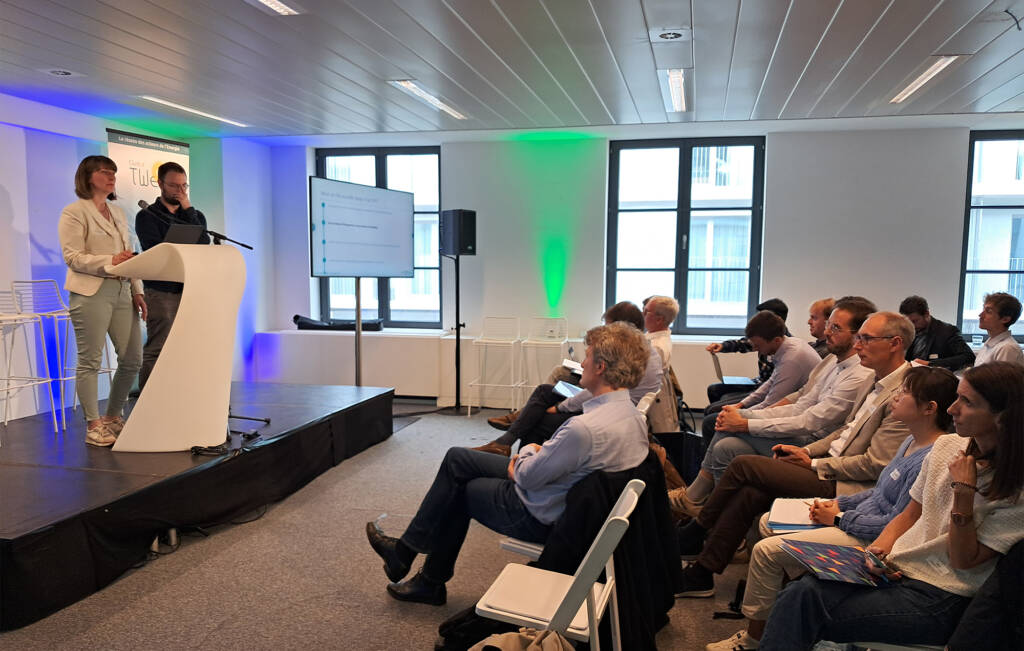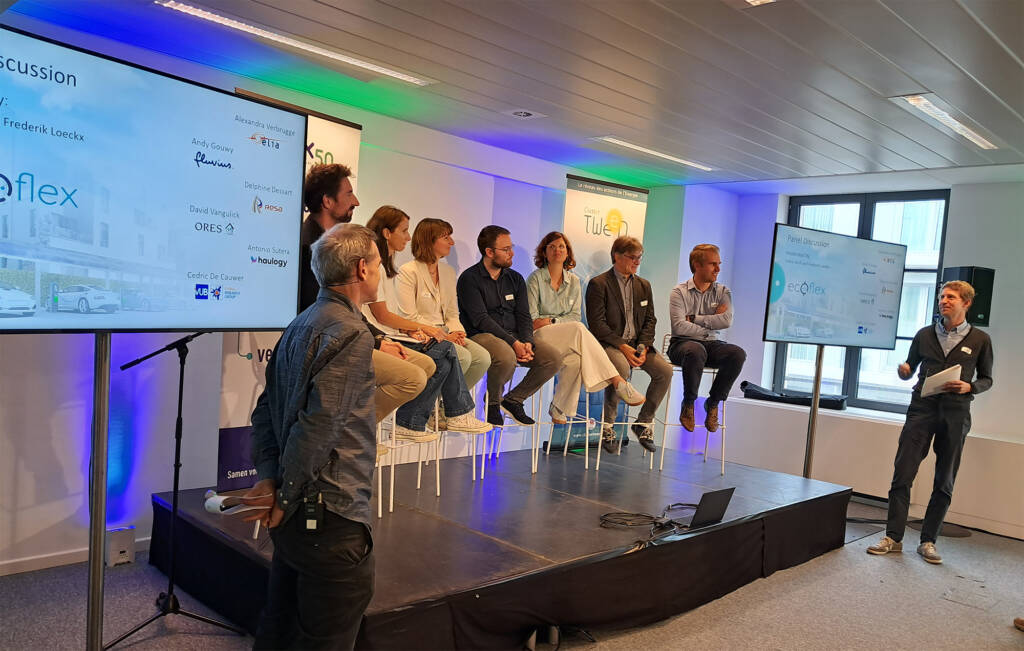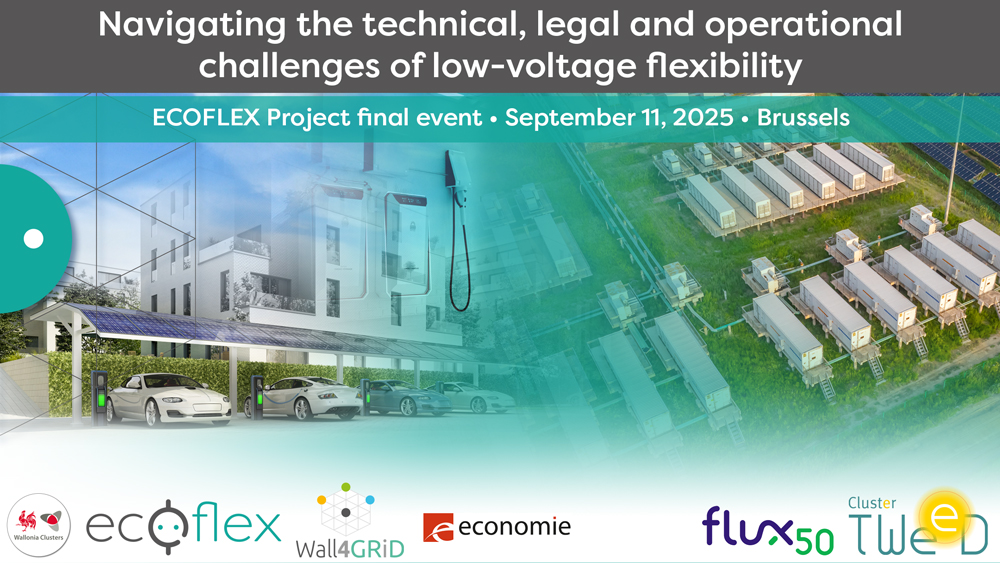On September 11, the ECOFLEX project held its final event at the BeClimate Hub in Brussels.
It was the opportunity to share three years of work, experimentation, and collaboration around low-voltage flexibility.
Supported by the FPS Economie, the project explored a central question of the energy transition: how can decentralized assets – electric vehicles, heat pumps, batteries, energy communities – contribute to a more sustainable, smarter, and more resilient grid?
Project partners:

On the agenda of this rich and insightful event:
- Sector experts’ interventions (TSO, DSOs & regulator) on the context, flexibility products, and action plans to address grid challenges.
- Presentation of the concrete results of the ECOFLEX project by the partners: academic research, developed tools (advanced EMS, Universal Flexibility Platform), legal and economic analyses, etc.
- Panel of key actors from across the energy value chain: network operators, flexibility service providers and solution integrators debating perspectives and viable flexibility business models.
Some key takeaways from the presentations and discussions:
- Technology is advancing rapidly, but standardisation and interoperability of data are essential to enable the use of different intelligent asset management systems.
- Growing legal and regulatory complexity still leaves significant room for adaptation and innovation.
- Business models still need to be consolidated to ensure profitability for all actors.
- User behaviour remains unpredictable (e.g. EV drivers), calling for the development of creative solutions to strengthen engagement and responsiveness to market signals.
This event confirmed that low-voltage flexibility is not only possible, but indispensable, paving the way for new business models, regulatory frameworks, and collaborations.
